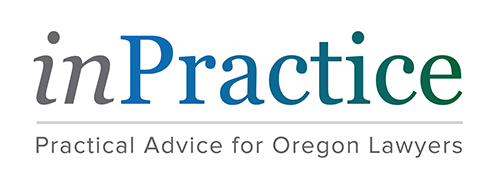Navigating legal practice can resemble sailing on a stormy sea. An iceberg may threaten the strength and journey of a ship, similar to malpractice. By understanding the makeup of the iceberg you can better avoid it, and the same can be said for malpractice claims.
File Management: Tips for Managing the Chaos
No two firms will likely have the exact same file management procedures, but file management best practices apply to everyone. Understand your storage options and best practice tips to ensure that your client files are being managed properly.
eDiscovery Software: Eye of the Storm
Discovery can be a major headache for law firms. The proliferation of electronic data makes it challenging for lawyers to efficiently manage all of this information. The typical discovery process can be complicated and expensive, especially for solo and small firms. Managing electronic discovery used to be seen as necessary only for large firms in complex litigation. Now, law firms of all sizes need to be able to handle eDiscovery.
Options for Redaction
Lawyers often need to securely remove confidential information, otherwise known as redaction, from discoverable documents. The physical act of using redaction tape or a sharpie to remove information from documents is time-consuming and can be frustrating to say the least, especially since many documents now arrive in electronic form rather than paper. If you haven’t already, consider using software to assist with the redaction process.
Reduce Malpractice Risk by Properly Managing Files
How you manage your files can present a malpractice risk. Proper file management can help you reduce the risk because it allows you to find the documents you need and encourages documentation.
Responding to Requests for the Client File
Lawyers routinely receive requests to share materials from the client file. Sometimes clients ask the lawyer directly, but other times the request comes from new counsel or third parties. Evaluating these requests requires you to consider who is entitled to the client file, as well as what documents and materials belong in the client file. Furthermore, you must also ask whether any limitations prevent you from releasing the complete contents of the client file.
A Better Way to Store Your Closed Files
The PLF gets frequent calls from lawyers asking about best practices for dealing with closed files. Traditionally, lawyers put their closed paper files in filing cabinets and store them in their office. When the cabinets are full, they move the files to a storage facility or the basement of the office building. The files stay there until destruction time, which is usually 10 years.
Unwanted Data: How to Properly Destroy Data in Hardware
If you have old computers and other office equipment laying around in your law office or home, there is a good reason they are still with you and not in the dumpster. This article will discuss why you should be concerned about the data in your devices and the proper way to dispose of them.








1493054686-17387.jpg)